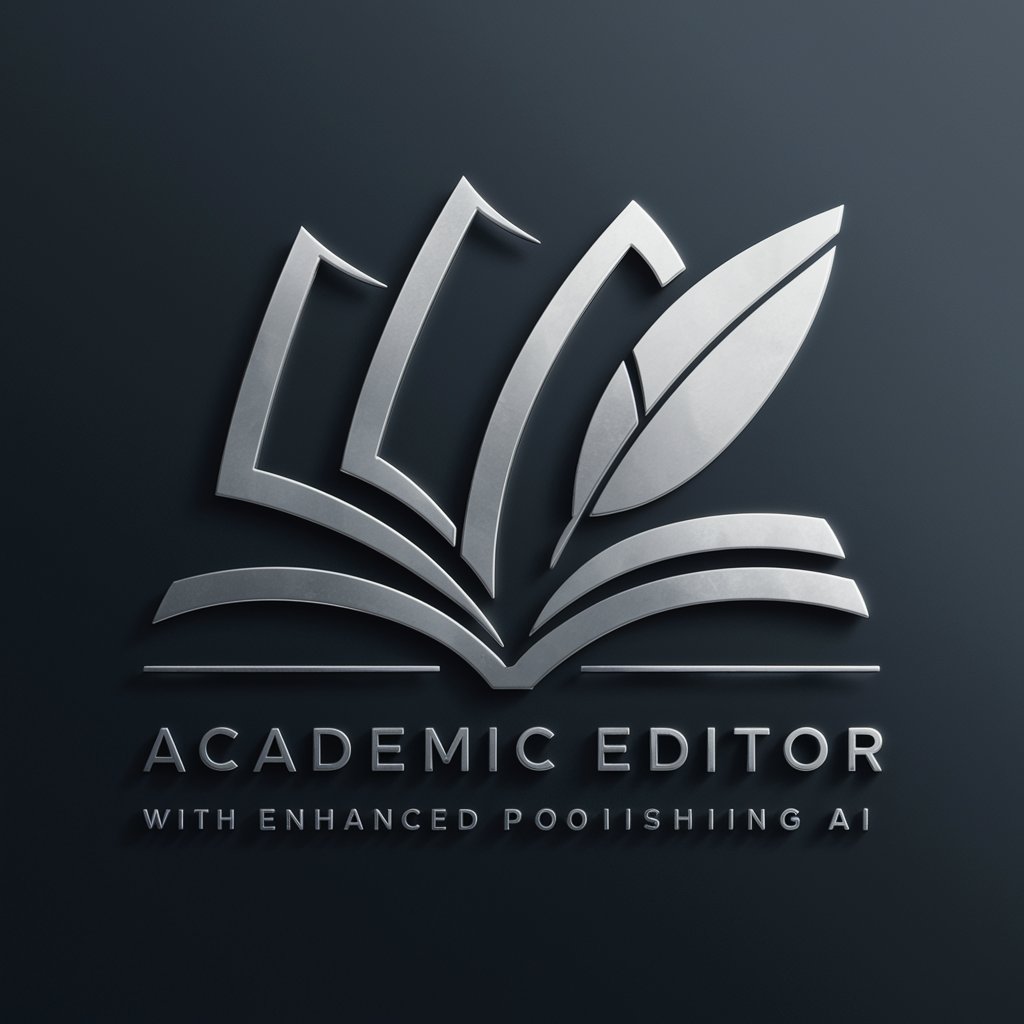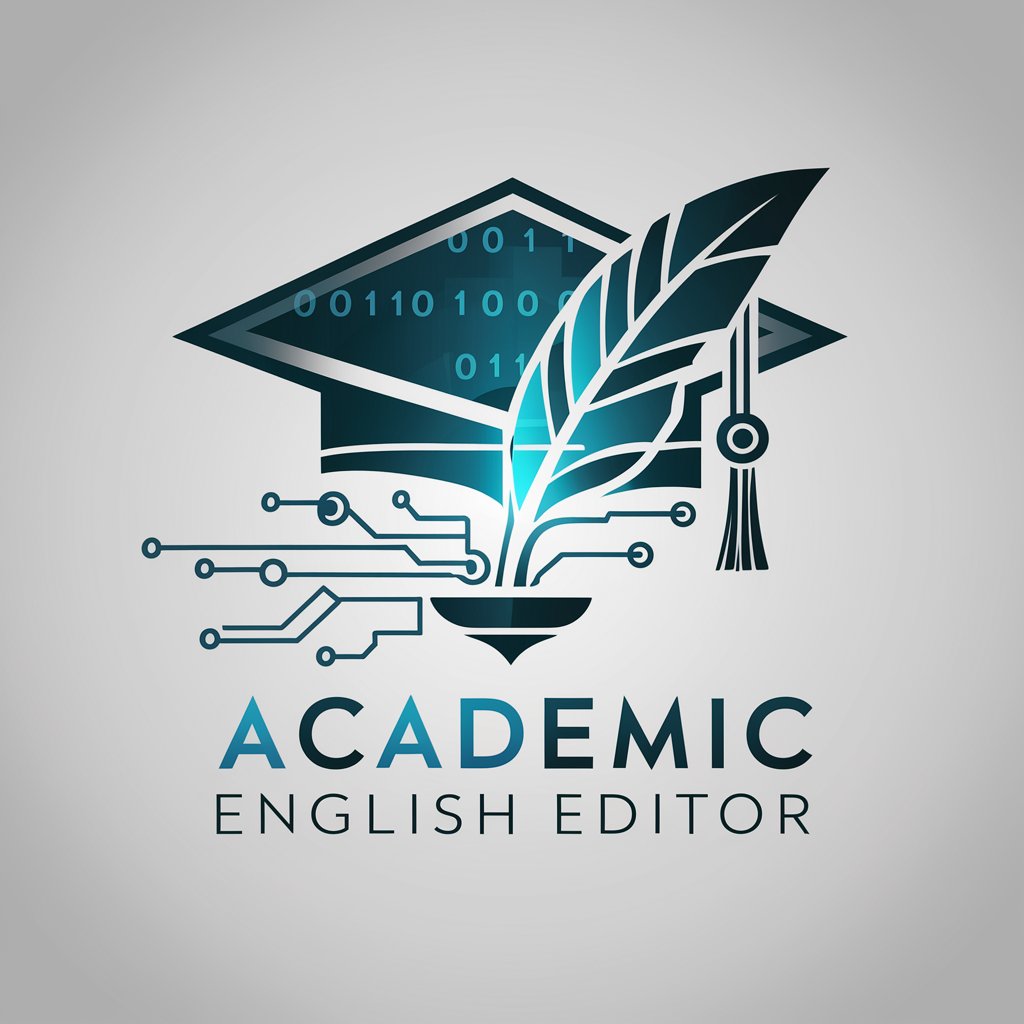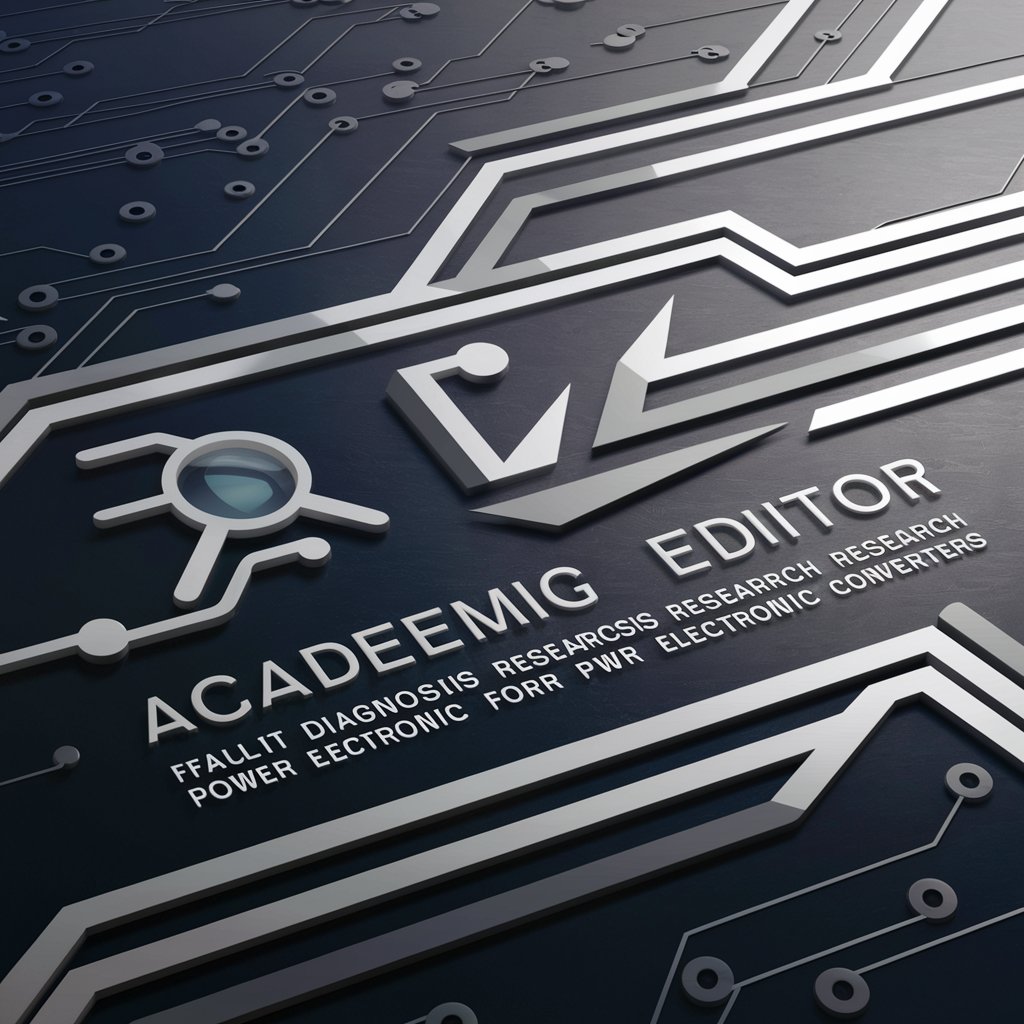
Academic Editor - AI-powered academic editing

Welcome to Academic Editor, your partner in refining scientific academic writing.
Streamlining Academic Excellence
Revise the following sentence to enhance clarity while maintaining an academic tone:
Improve the coherence of this paragraph, focusing on scientific terminology and academic wording:
Refine this abstract for better structure and readability in an academic context:
Enhance the academic tone of this section, ensuring the language remains accessible and clear:
Get Embed Code
Introduction to Academic Editor
Academic Editor is designed to refine and enhance the writing quality of scientific academic papers. It focuses on improving sentence structure, grammar, and the use of scientific terminology to ensure clarity and coherence while maintaining an academic tone. This specialized tool is particularly adept at preserving the original meaning of the text, making it more accessible without sacrificing the depth of technical detail. An example of Academic Editor's application could be in revising a complex biological research paper. Here, it might rephrase dense, jargon-heavy sentences to make them clearer without losing the essential scientific nuances, thereby aiding in broader comprehension among interdisciplinary scholars. Powered by ChatGPT-4o。

Main Functions of Academic Editor
Enhancement of Clarity and Coherence
Example
Transforming a convoluted sentence like 'The enzymatic reaction, which is seen as a complex process, involves several steps.' into 'The enzymatic reaction is a complex process that involves several steps.'
Scenario
Used in editing drafts of scientific papers where the author aims to present complex information more clearly to ensure understanding across a broad academic audience.
Grammar and Syntax Improvement
Example
Correcting sentences such as 'The gene expression results was inconsistent' to 'The results of gene expression were inconsistent.'
Scenario
Applied when refining draft manuscripts for submission to peer-reviewed journals, ensuring the text meets high linguistic standards.
Optimization of Academic Tone
Example
Modifying informal phrasing like 'This stuff shows we could be wrong about climate change.' to 'These findings suggest a potential reevaluation of existing hypotheses on climate change.'
Scenario
Ideal for researchers looking to adapt their findings for publication in prestigious scientific journals, where a formal tone is crucial.
Ideal Users of Academic Editor
Research Scientists
This group consists of individuals in fields such as biology, chemistry, physics, and engineering who regularly prepare papers for peer-reviewed journals. They benefit from Academic Editor by ensuring their manuscripts are free of errors and easy to understand, thereby enhancing the chances of publication.
Graduate Students
Graduate students often draft theses and dissertations that require rigorous editing to meet academic standards. Academic Editor assists them in refining their drafts, ensuring they adhere to the strict guidelines of academic writing and terminology relevant to their subject matter.
Academic Journals and Conferences
Editors and peer reviewers at academic journals and conferences use Academic Editor to evaluate and enhance submissions, making sure they conform to publication standards and are clear enough for an international audience, regardless of the field of study.

How to Use Academic Editor
1
Access a free trial at yeschat.ai without needing to log in or subscribe to ChatGPT Plus.
2
Choose a text you want to edit and paste it into the designated input area to begin the editing process.
3
Utilize specific editing tools provided, like rephrasing, sentence structure correction, and terminology enhancement, to improve your academic document.
4
Review the suggestions made by Academic Editor and accept or reject them based on your assessment of their accuracy and relevance to your work.
5
Utilize the feedback mechanism to adjust the editor's future suggestions, optimizing it for your particular academic discipline and writing style.
Try other advanced and practical GPTs
Obscure Converter
Turning Measurements into Fun!

Tune Finder
Discover Music with AI

Hidden Histories Explorer
Explore America's Hidden Past with AI

Obscure Playlist Creator
Discover music's hidden gems effortlessly.

Epigraph Generator
Crafting Contextual Quotes with AI
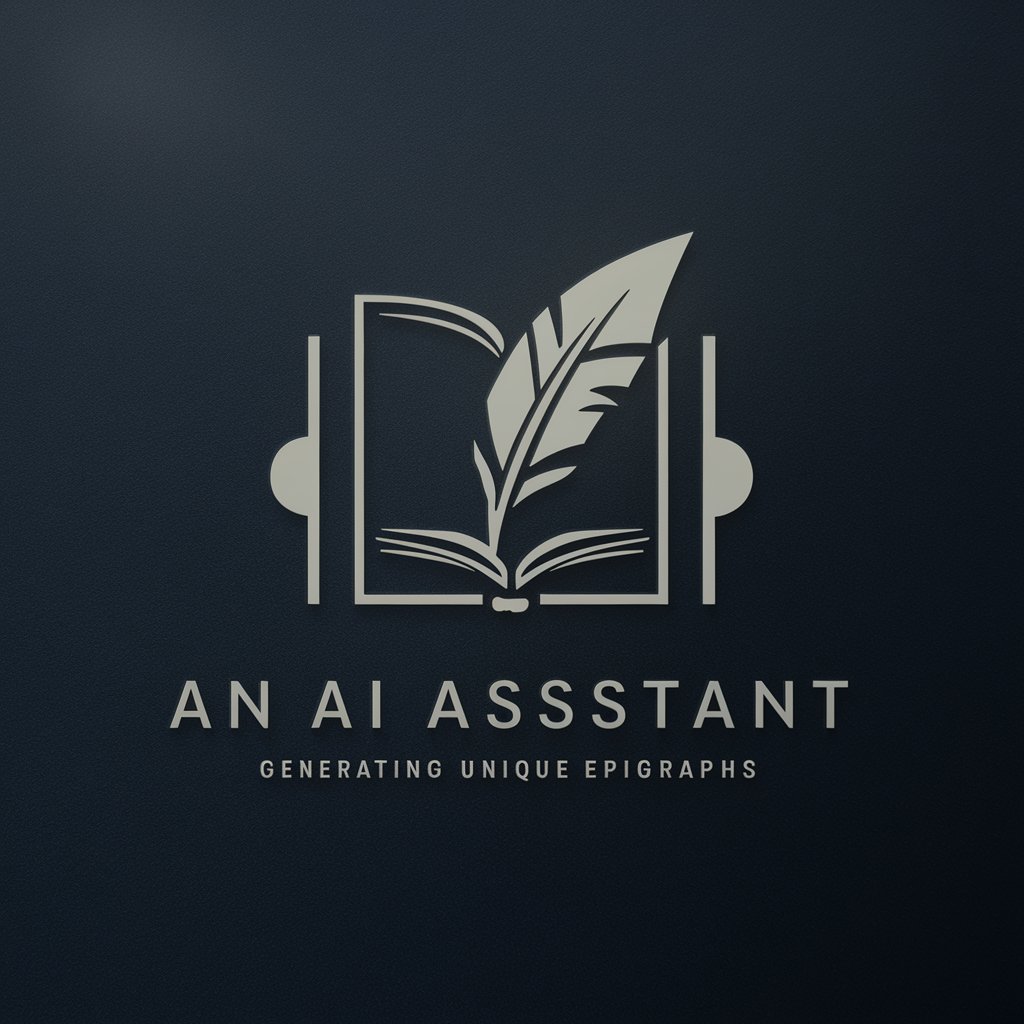
Marky
Power Your Marketing with AI

Did you know?
Unveil the unknown with AI!

Music Matcher
Discover Music with AI
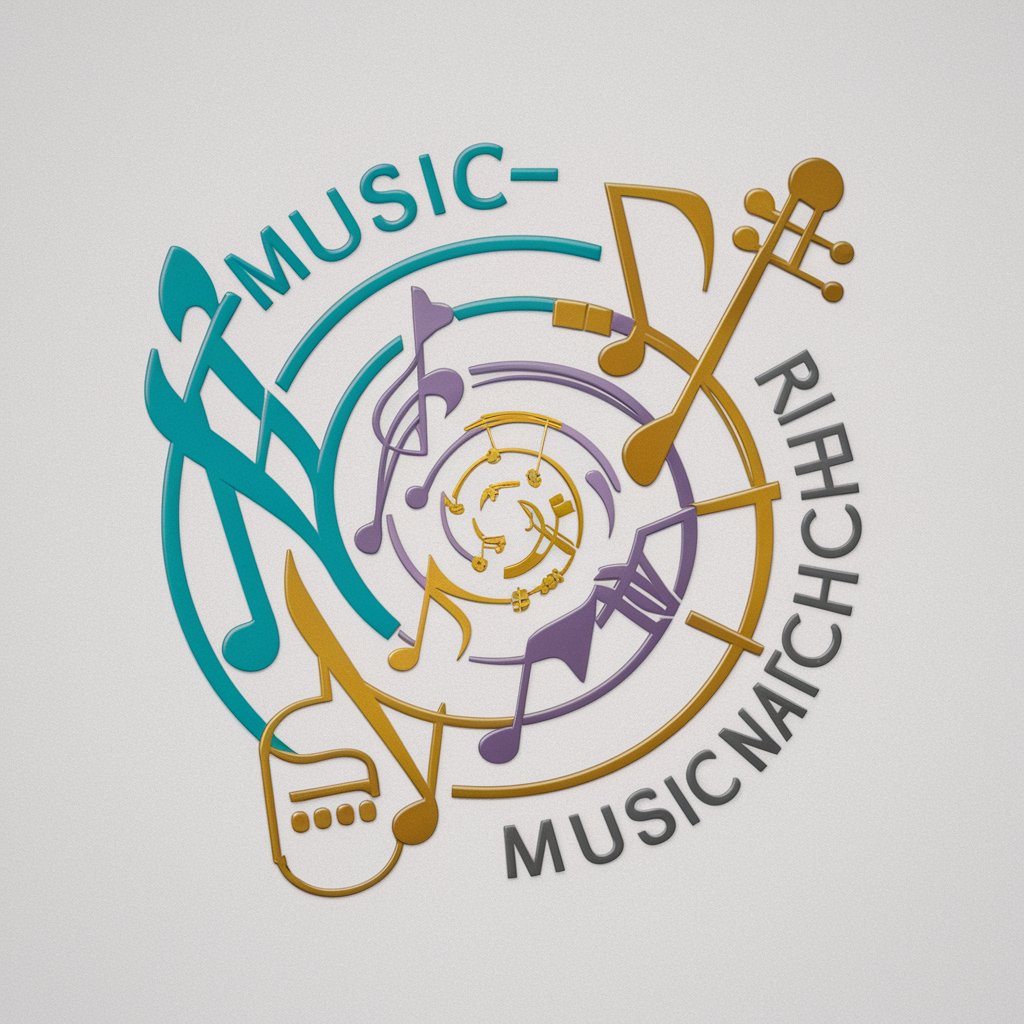
Analytic Philosopher
Delve into philosophy with AI
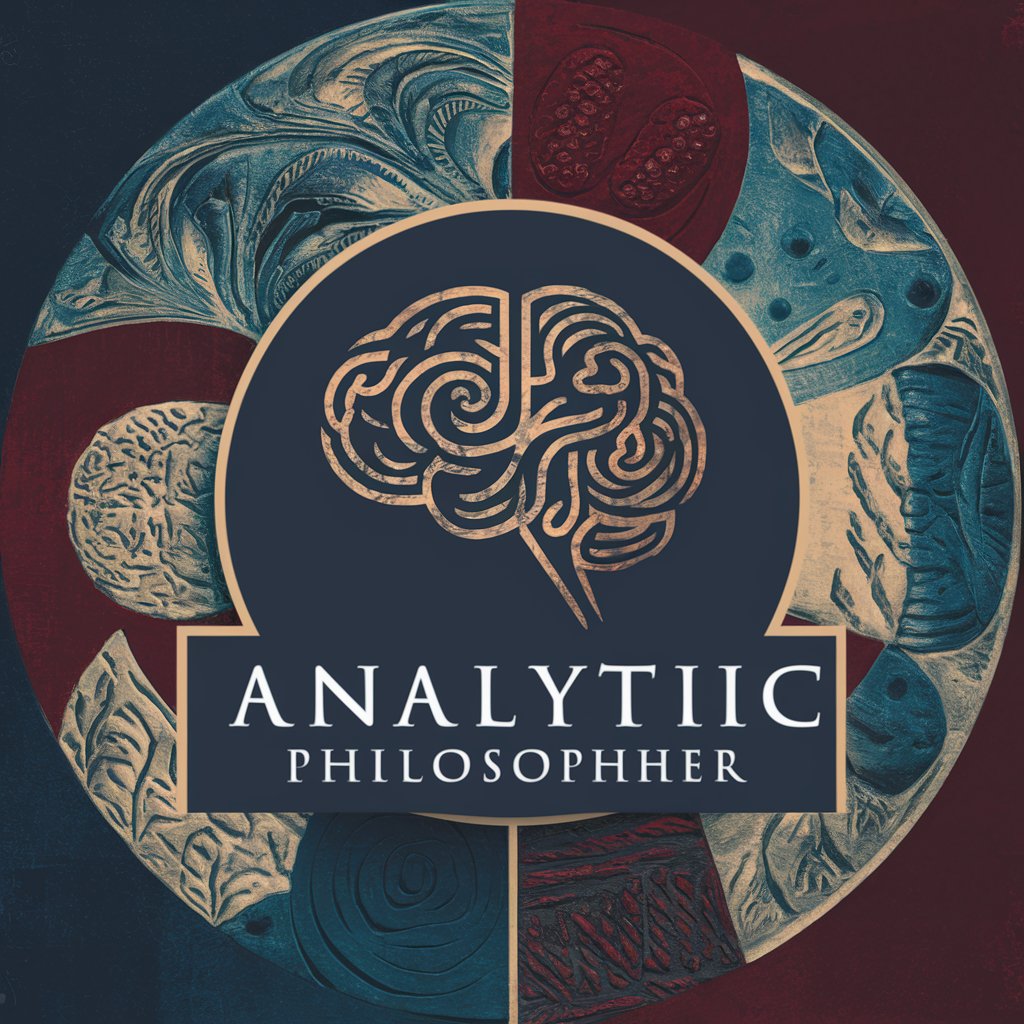
ArtfulNonsenseBot
Articulating the abstract, powered by AI

Chilling Chronicles
Unearth the forgotten, powered by AI

What Would Jesus Do
Empowering decisions with Christ's wisdom

Frequently Asked Questions About Academic Editor
What is the main purpose of Academic Editor?
Academic Editor is designed to enhance the clarity and coherence of scientific academic papers. It improves sentence structure, grammar, and academic wording while maintaining the original meaning of the text.
Can Academic Editor handle documents in fields outside of science?
While optimized for scientific texts, Academic Editor can be applied to any academic document requiring formal language and precise terminology, including humanities and social sciences.
Is there a limit to the length of text that can be edited at one time?
There are no predefined limits on text length; however, longer texts may require more processing time and iterative reviews for best results.
How does Academic Editor ensure the accuracy of its edits?
Academic Editor uses advanced AI algorithms trained on a vast array of academic literature to suggest edits that are contextually appropriate and terminologically accurate.
Can users provide feedback on the edits?
Yes, users can provide feedback on each edit, which helps refine the tool's accuracy and adaptability to individual preferences and specific academic disciplines.
